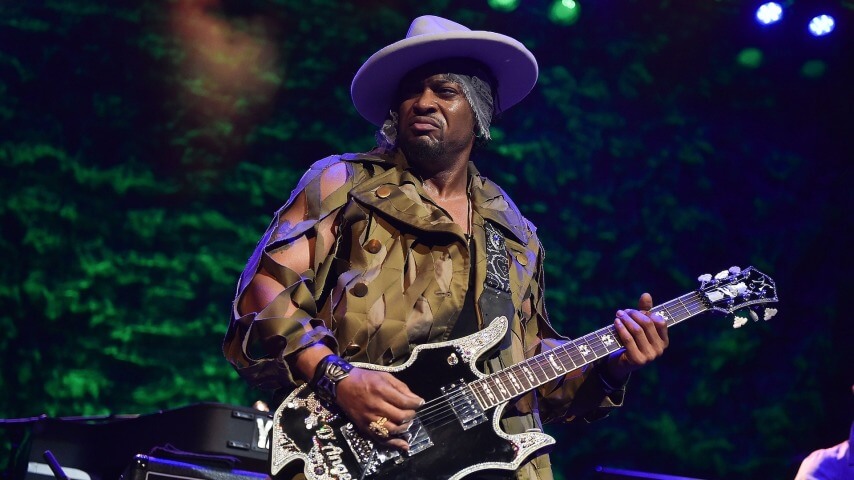Born in Richmond, Virginia in 1974, Michael Eugene Archer dropped out of school and moved to New York to pursue music as a teenager. After a stint in the hip-hop group IDU (Intelligent, Deadly but Unique), he was signed as a solo artist. Before releasing his debut album Brown Sugar, he had success writing and producing “U Will Know” for the supergroup Black Men United, featured on the Jason’s Lyric soundtrack. His own album slowly climbed up the charts after its release in 1995, securing his status as an artist on the rise. His second album, 2000’s Voodoo, was a commercial and critical success, debuting atop the Billboard 200 chart and earning him a Grammy for Best R&B Album.
Voodoo also spawned the iconic music video for “Untitled (How Does It Feel),” which depicted the artist nude while lip syncing to the sensual track. The video turned D’Angelo into a sex symbol, but it was an image the artist struggled with; collaborators pointed to the heightened objectification as having a negative effect on his confidence. Between albums he had difficulties with writer’s block and substance abuse issues. He toured and collaborated with other artists, but it would take 14 years for D’Angelo to release another studio album after Voodoo.
When it finally did arrive, D’Angelo’s third and final record was another critically acclaimed, Grammy-winning project. “There’s a thematic and sonic awareness to Black Messiah—credited to D’Angelo And The Vanguard—that makes it so much more than a long-delayed comeback album from an artist widely declared a genius some 15 years ago. It’s somehow the past, present, and future all in one,” Kyle Fowle wrote in his A review for The A.V. Club at the time. “Black Messiah doesn’t sound like anything else this year, or maybe even the last decade. It’s an album that pays homage to the history of black music, from blues, funk, and soul through to hip-hop and modern R&B while remaining in touch with current socio-economic and political struggles. Maybe that’s because those modern struggles aren’t so different from the ones in the past. Black Messiah confirms that music holds the power to challenge and comfort, to take us someplace spiritual, political, and existential. It’s beautifully, devastatingly human.”
D’Angelo is survived by his three children, including his son with artist Angie Stone, who died earlier this year.

 Keep scrolling for more great stories.
Keep scrolling for more great stories.
